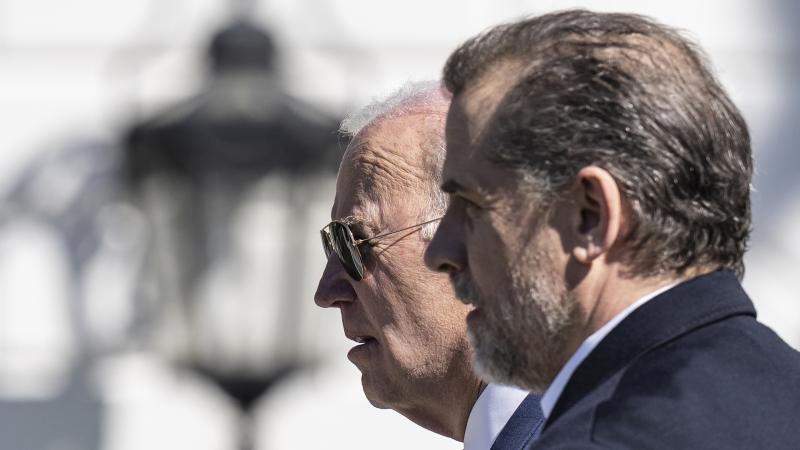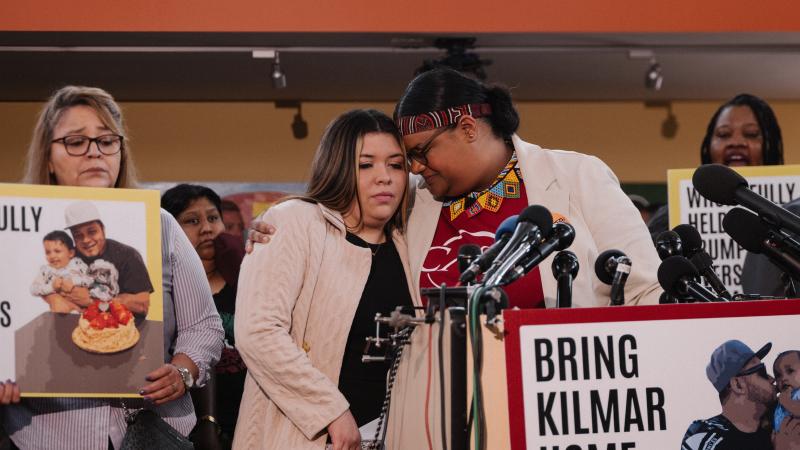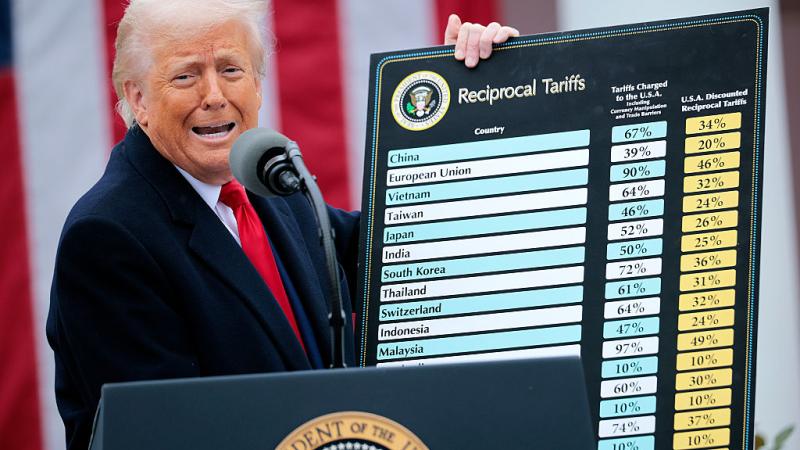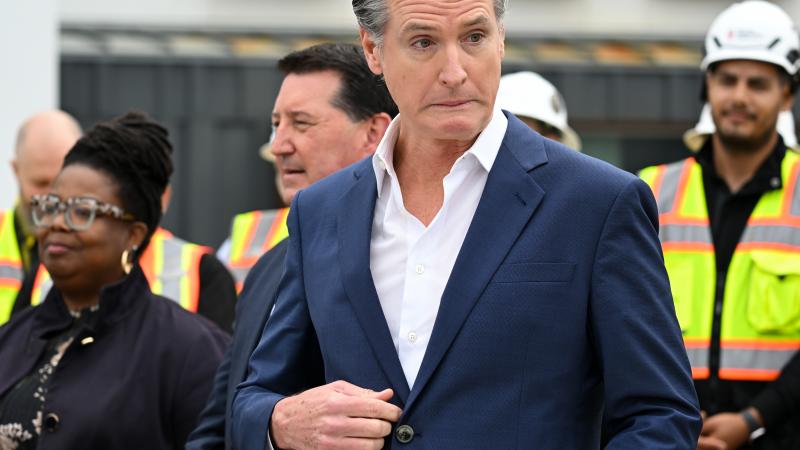Timeline of the Justice Department's case against Michael Flynn
The Justice Department dropped its case against Former National Security Advisor Michael Flynn. Here's a timeline of the case, from January 2017 to May 2020.
Jan. 24, 2017
Flynn was national security adviser to President Trump. He was approached by FBI agents who wanted to interview him about communications with Sergey Kislyak, a Russian ambassador.
Feb. 13, 2017
Flynn resigned from his position at the White House. He did so because he was accused of misleading multiple White House officials, including Vice President Pence, about those previous communications with Kislyak.
May 17, 2017
Former FBI Director Robert Muller, as special counsel, takes over the federal investigation of Russian interference in the 2016 U.S presidential election.
Dec. 1, 2017
During the Mueller investigation, Flynn admitted to making false statements about his communications with Kislyak in his FBI interview months earlier. His plea deal required him to fully cooperate with investigators and Mueller’s office, to which he agreed.
This was two of the false statements according to the charging documents:
- “On or about Dec. 29, 2016, FLYNN did not ask the Government of Russia’s Ambassador to the United States…to refrain from escalating the situation in response to sanctions that the United States had imposed against Russia that same day; and FLYNN did not recall the Russian Ambassador subsequently telling him that Russia had chosen to moderate its response to those sanctions as a result of his request.”
- “On or about Dec. 22, 2016, FLYNN did not ask the Russian Ambassador to delay the vote on or defeat a pending United Nations Security Council resolution; and that the Russia Ambassador subsequently never described to FLYNN Russia’s response to his request.”
Feb. 1, 2018
Mueller and Flynn’s attorneys file a joint status report requesting more time regarding the guilty plea, saying “Due to the status of the special counsel’s investigation, the parties do not believe that this matter is ready to be scheduled for a sentencing hearing at this time.” They requested that they have until May to determine that they’re ready.
April-May 2018
The then-Republican-controlled house releases House Intelligence committee report on the Russia probe. The report states FBI agents told agency Director James Comey that they didn’t think Flynn lied about his discussions with Kislyak.
Comey disputed this part, citing a possible misunderstanding and saying “I didn’t think that and didn’t say that.”
May 1, 2018
Flynn and Mueller’s attorneys file another delay for Flynn’s sentencing.
June 29, 2018
Flynn and Mueller’s attorneys file another delay, and Judge Emmet G. Sullivan demanded why they needed to keep delaying.
Aug 21, 2018
Another status report is filed saying Flynn was continuing to cooperate.
September 2018
A joint status report is filed saying “matter is now ready to be scheduled for sentencing.”
Dec. 4, 2019
Mueller recommends a lenient sentence for Flynn due to his cooperation.
Dec. 9, 2018
Comey says in an MSNBC interview that he was the one who sent the FBI agents to Flynn’s house in the first place to interview Flynn. He comments that he probably shouldn’t have sent them. The interview was arranged directly with Flynn, which was not standard practice at the FBI.
Dec. 12, 2018
Flynn’s attorneys revealed in a court filing that former FBI Deputy Director Andrew McCabe suggested to Flynn that he not have his lawyer present during the questioning that lead to his original guilty plea. The document alleged that the FBI was more aggressive than usual in handling the Flynn interview.
The attorneys also alleged that the FBI agents did not tell Flynn that false statements could be considered a crime.
Dec. 14, 2018
Mueller has until the afternoon to produce the FBI documents related to Flynn’s case. Judge Sullivan is able to throw out Flynn’s guilty plea and the charge if he finds that the FBI violated his constitutional right to counsel.
March 2019
Flynn’s attorneys file for another delay.
March 24, 2019
Attorney General Bill Barr finds that Mueller “did not find that the Trump campaign, or anyone associated with it, conspired or coordinated” with Russians who were involved in meddling in the 2016 elections.
April 18, 2019
Mueller’s report is released. The report showed that no collusion between the 2016 Trump campaign and Russia was found.
May 29, 2019
Mueller declares the investigation complete.
June 6, 2019
Michael Flynn fired his legal team while awaiting sentencing.
June 12, 2019
Flynn hires a Mueller critic to represent him – attorney Sidney Powell.
August 2019
Powell files a motion stating Flynn’s case is not ready for sentencing. She also claimed that she was being prevented from reviewing classified material needed for the case, such as phone call recordings and transcripts.
October 2019
Justice Department attorneys respond, saying Powell’s information requests from the government were “either irrelevant or seek information that has already been provided.”
Oct 25, 2019
Powell filed a motion to “dismiss the entire prosecution for outrageous government misconduct.”
November 2019
Sullivan postpones Flynn’s sentencing until report by Justice Department Inspector General Michael Horowitz on the Russia probe is released.
December 2019
Judge Sullivan sets a Jan. 28 sentencing date. He also rejects Flynn’s legal team’s request for important information that may have been withheld by the FBI. Sullivan claimed that Flynn still needed to prove the information he was requesting was actually in his favor.
Jan 7, 2020
Justice Dept. recommends up to six months in prison for Flynn.
Jan 14, 2020
Flynn files motion to withdraw his original guilty plea for lying to the FBI.
Jan 16, 2020
Sullivan pushes Flynn’s sentencing back to Feb. 27.
Feb 9, 2020
Federal prosecutors suggest delaying more deadlines, saying Flynn’s former lawyers should testify as well.
Feb 10, 2020
Sullivan indefinitely postpones Flynn’s sentencing.
March 15, 2020
Trump said he’s “strongly considering” pardoning Flynn after the Justice Department misplaced records from Flynn’s interview with the FBI agents back in 2017
April 29, 2020
New internal FBI documents were unsealed, showing that top FBI officials were discussing whether they were interviewing Flynn with the “goal” or intent to catch him in a lie, so he could be fired.
They discussed making him admit to breaking an obscure statute called the Logan Act, which had never been used in criminal prosecution before. The Logan Act prevents people from falsely claiming to represent the US government abroad.
May 7, 2020
The Justice Department dropped Flynn’s case, saying “The Government has determined, pursuant to the Principles of Federal Prosecution and based on an extensive review and careful consideration of the circumstances, that continued prosecution of this case would not serve the interests of justice.”
You can read more about Michael Flynn's case here:
Fox News: Michael Flynn prosecution: A timeline of Trump’s ex-national security adviser’s case
The Guardian: Michael Flynn: timeline of the former national security adviser's case















